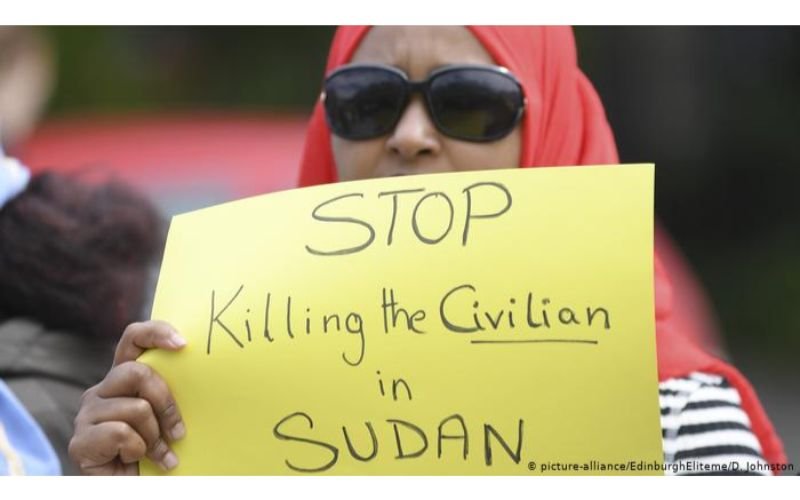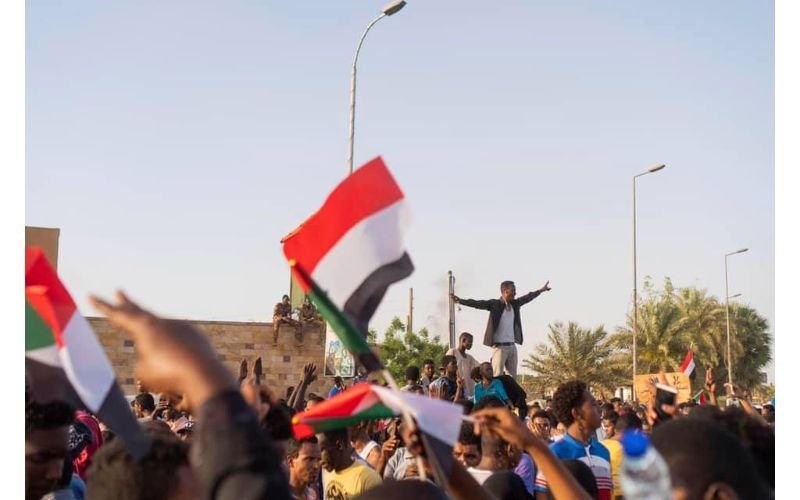Great hopes and Great Fears are synonymous to describing the crisis that has engulfed Sudan. What started as an optimism of liberation from the government of al-Bashir has turned into a pessimistic realism. The twists and turns have soured the tone of what started as a revolution for the benefit of people.
Here is everything you need to know about the unrest which continues to shake Sudan.

What acted as a catalyzer?
In 2011, the southern part of the country gained independence and became the Republic of South Sudan. The move deprived Sudan of its oil reserves and since then, the economy has spiralled downwards, resulting in higher prices for bread and other basic commodities.
However, it was in 2018 when the matters worsen. The President Bashir’s government imposed emergency austerity measures in an attempt to stave off economic collapse.
Cuts to bread and fuel subsidies sparked demonstrations in the east over living standards and the anger spread to the capital city of Sudan, Khartoum.
The protests broadened into demands for the removal of Mr Bashir – who had been in charge for 30 years.
The protests reached a climax on 6 April, when demonstrators occupied the square in front of the military’s headquarters to demand that the army force the president out.
Five days later, the military announced that the president had been overthrown.
Who are the protestors?

The protesters are mostly young, reflecting the country’s demographics, but people of all ages have been seen in the crowds. However, it is the Sudanese Professionals Association (SPA)- a collaboration of doctors, lawyers and health workers who set the tone of the protests. Also, Women are also at the forefront of the demonstrations.
Why they wanted to topple Bashir?
Bashir took over as President of Sudan in 1989. Though he has technically been re-elected several times, human rights groups claim that elections weren’t democratic.

Image Source
Bashir’s legacy has been one of human suffering and atrocities. He isn’t regarded as a benevolent leader. It was estimated that more than 15,000 villagers were killed by the government-backed Janjaweed militia between early 2003 and late 2004 in Darfur, and millions of Sudanese people were displaced.
The International Criminal Court’s chief prosecutor issued an arrest warrant in 2009 for Bashir on charges of genocide and war crimes related to Darfur. The court issued another arrest warrant in 2010 but in 2014 had to suspend the case because of lack of support from the United Nations Security Council. However, through it all, Bashir retained power.
So who is in charge now?
A council of generals assumed power on 11 April.
The seven-member Transitional Military Council (TMC) is led by Lt-Gen Abdel Fattah Abdelrahman Burhan.
Why the ongoing protest is not withstanding Bashir’s ouster?
The euphoria and celebration could be seen amongst the protestors after Bashir was overthrown. However, what protestors envisaged as a breakthrough was short-lived.

The excitement soon gave way to demands that the transitional military council make way for a civilian-led interim body and elections. To the protesters, it was time to hand power back to the people with democratic elections. The military and protestors agreed on May 15 to a three- year transition period to civilian rule. The two sides also agreed on the structure of a new government – including a sovereign council, a cabinet and a legislative body.
But the military leaders scrapped all of these agreements on 3 June and said fresh elections would be held within nine months.
The TMC’s head said they had decided to “stop negotiating with the Alliance for Freedom and Change and cancel what had been agreed on”. The announcement came shortly after the violent crackdown on protesters in Khartoum.
How events developed afterwards?
In the wake of killings, the leaders of the pro-democracy movement said they were cutting all contact with the TMC and called for “total civil disobedience” and a general strike.

The effort, rendered the streets of the capital Khartoum mostly deserted, includes not going to work and “general civil disobedience for a civil state.
Meantime, the bloodshed has continued. Soldiers and paramilitary groups earlier this month opened fire on a pro-democracy sit-in in Khartoum, leaving at least 118 dead. The massacre horrified human rights activists and governments worldwide.
International Response

– Most African and western countries have backed the protesters.
– The African Union (AU) has suspended Sudan from its membership until a civilian led transitional authority is established.
– Saudi Arabia has urged discussions between the two sides, but not directly condemned military violence.
– The UN is removing all non-essential staff from Sudan but China and Russia have blocked moves to impose sanctions.
– The US National Security Advisor, John Bolton, condemned the Khartoum violence, calling it “abhorrent”. But the BBC Africa editor Fergal Keane said this will only mean something if the US demands that its regional allies – Egypt, Saudi Arabia and the United Arab Emirates – exert pressure on the Sudanese military.


